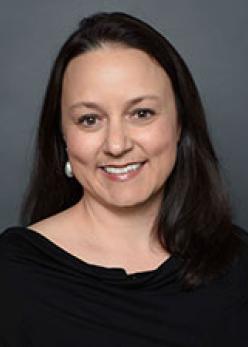Growing KU's Interdisciplinary Strengths in Genomics
This project aims to unlock the secrets held in genomes to understand where we come from, how we fight disease, how organisms respond to a changing environment/climate, and new bioengineering approaches for sustainable development and health advances. The principal investigators are Rob Unckless, associate professor of molecular biosciences and director of KU’s Center for Genomics, and Lena Hileman, professor of ecology & evolutionary biology. They are joined by faculty colleagues in molecular biosciences, anthropology, ecology & evolutionary biology and engineering.
Project Goals
New faculty will drive innovation and discovery and bring significant research funds to KU. The departmental homes of these hires are also some of the departments and units with the highest enrollment of undergraduates and the highest student-to-faculty ratios, so focused hiring in these areas also supports and grows our teaching mission. The measurable outcomes of this aim are new faculty hires and funded federal grants for those hires.
At the heart of most genomic efforts is mapping phenotypes (traits) to genotypes (genomic sequences), and understanding how genotypes give rise to complex phenotypes. Recent advances have begun to examine how these changes occur over time, but many of these approaches are in their infancy. Our researchers are finding new variants of viruses in wastewater, looking for pollution-degrading enzymes, understanding demographic histories and selective pressures on genes, unraveling the genetic mechanisms of development and understanding pathogen/host interaction. Therefore, our overarching research aim is to integrate genomics with temporal and spatial information to understand how a changing genome leads to changing phenotypes. While each researcher will take field-specific approaches, there are several general, common concepts.
The KU Center for Genomics supports these cross-disciplinary efforts, and Research Rising funding will allow investment into common resources, such as hiring of a bioinformatics specialist and purchasing of computational nodes. The measurable outcomes are a) productivity of genomics-related faculty (papers, seminars, patents), b) collaboration among faculty, and c) submission of synthetic, cross-disciplinary and capacity-building grants.
We recognize that a broad and representative scientific workforce enhances the exchange of ideas and fosters innovative problem-solving. To strengthen participation and engagement across the research community at KU, we will develop several initiatives that support collaborative excellence and ethical research practices. These efforts include:
- Expanding hiring pathways to attract outstanding candidates whose experiences and perspectives contribute to the advancement of science and education. This includes a commitment to strategic hires aimed at strengthening KU’s research capacity in STEM fields.
- Supporting graduate training programs (e.g., NIH T32, NSF NRT) in genomics that encourage participation from individuals with a wide range of backgrounds and experiences.
- Enhancing outreach and mentorship to increase engagement at earlier career stages, with a focus on cultivating interest in genomics and biomedical research.
The unprecedented availability of genetic data raises important ethical questions about how such information may be used or misused. It is essential to collaborate with experts in ethics and responsible conduct to ensure our research practices are grounded in fairness, transparency, and respect for individual rights. Ethics training will be integrated throughout our activities to promote responsible stewardship of genomic data.
Goal Progress
Four new hires have been made: Katya Mack, Obed Garcia, Emily Beck, and Allie Graham.
Research Team

Lena Hileman

Katya Mack

Matthew Mosconi

Maria E. Orive

Jennifer Raff

Belinda S.M. Sturm

Robert Unckless


